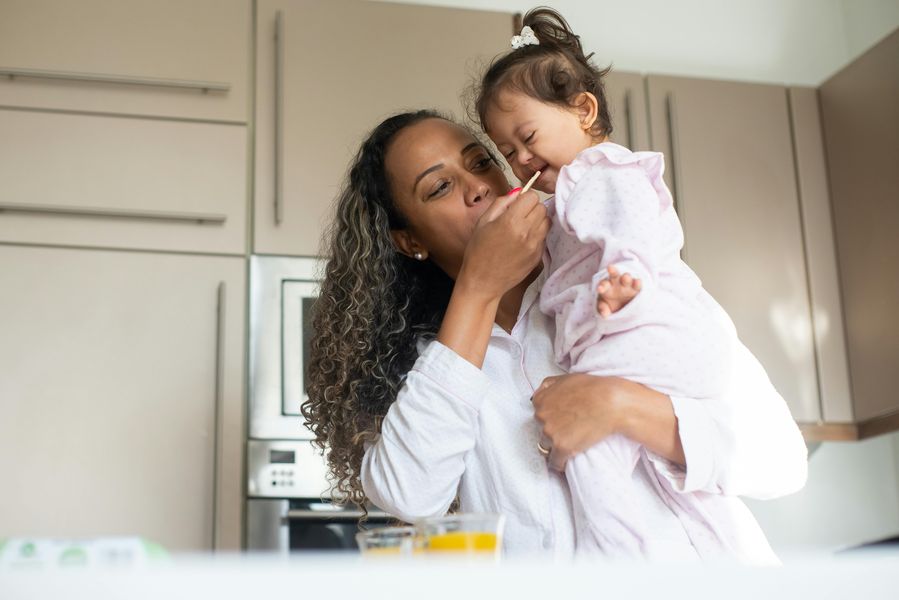The Negative Consequences of Playing the Victim
Have you ever found yourself in a situation where you constantly blame others for your problems? Do you feel like a victim of circumstances that are beyond your control?
If you answered “yes” to these questions, you might be playing the victim. While it may provide temporary relief, playing the victim can have negative consequences that affect not only you but also the people around you.
In this article, we’ll explore some of the negative consequences of playing the victim and how it affects personal relationships.
Manipulation Tactic
One of the consequences of playing the victim is the use of manipulation tactics. When you portray yourself as a victim, you can use it to gain sympathy from others.
This can be an effective way to get attention, favors, and help from others. However, using this tactic will harm your relationships with others in the long run.
People will eventually see through your manipulation, and they will start to resent you.
Blaming Others for One’s Own Mistakes
Another common consequence of playing the victim is blaming others for your own mistakes.
When you blame someone else for your problems, you avoid taking responsibility for your actions. This can be a vicious cycle that prevents you from learning from your mistakes.
In addition, blaming others can lead to social isolation as people start to avoid you. Who wants to be around someone who always points the finger at others?
Pushing People Away
Playing the victim can push people away. If you’re constantly complaining and portraying yourself as the victim, people will start to distance themselves from you.
No one wants to be around someone who brings them down and creates negative energy. Eventually, you might find yourself alone, wondering why nobody wants to spend time with you.
Engaging in Negative Self-Talk
Playing the victim can also lead to negative self-talk. If you believe that you’re a victim of circumstances, you’ll start to see yourself as powerless.
This can lead to feelings of helplessness and worthlessness. Negative self-talk can create a self-fulfilling prophecy that reinforces the belief that you’re a victim.
Lack of Accountability
Playing the victim prevents you from taking accountability for your actions. When you’re always blaming others for your problems, you’re not taking responsibility for your own life.
This can limit your growth and development as a person. Taking accountability for your actions is necessary for personal growth and satisfying relationships.
Creating Drama
Another consequence of playing the victim is creating drama. When you portray yourself as a victim, you attract drama to your life.
Drama can be fun and exciting in the short term, but in the long run, it can be draining and exhausting. Drama can harm your relationships with others and can lead to unnecessary stress and anxiety.
Ungratefulness
Playing the victim can also lead to ungratefulness. When you’re always complaining about your problems, you forget to be grateful for the good things in your life.
This can cause you to take things for granted and miss out on the positive aspects of life. Being grateful is essential for a happy and fulfilling life.
Jealousy
Playing the victim can also lead to jealousy. When you believe that others have it better than you, you might become envious of them.
This can lead to resentment, which can harm your relationships with others.
Jealousy is a toxic emotion that can bring out the worst in people.
Obsession with the Past
Playing the victim can cause an obsession with the past. When you’re always dwelling on past events, you’re not living in the present.
This can prevent you from moving on and creating a better future for yourself. Letting go of the past is necessary for personal growth and development.
Difficulty in Trying New Things
Playing the victim can also lead to difficulty in trying new things. When you’re always blaming others for your problems, you might avoid taking risks and trying new things.
This can limit your personal growth and development. Trying new things is necessary for expanding your horizons and discovering new interests.
Lack of Confidence and Self-Esteem
Playing the victim can also lead to a lack of confidence and self-esteem. When you believe that you’re a victim of circumstances, you’re not confident in your ability to control your life.
This can harm your self-esteem and prevent you from achieving your goals. Confidence and self-esteem are essential for living a happy and fulfilling life.
Showing Temper
Playing the victim can also lead to showing temper. When you’re constantly blaming others for your problems, you might become angry and irritable.
This can harm your relationships with others and lead to unnecessary conflict. Showing temper isn’t a healthy way to deal with emotions.
Specific Effects of Playing the Victim on Personal Relationships
Playing the victim can have specific effects on personal relationships. It can damage relationships and hurt loved ones.
Here are some ways playing the victim can harm personal relationships:
Damage to Relationships
Playing the victim can damage relationships. When you’re always blaming others for your problems, you’re not taking responsibility for your actions.
This can lead to resentment and anger in your relationships. People might feel like you’re not taking their feelings into account, which can lead to a breakdown in communication.
Hurting Loved Ones
Playing the victim can also hurt loved ones. When you’re always complaining and dwelling on your problems, it can be hard for others to be around you.
Your loved ones might feel like they’re walking on eggshells around you to avoid upsetting you. This can put a strain on relationships and make it harder for your loved ones to connect with you.
Gaslighting
Playing the victim can also lead to gaslighting.
Gaslighting is when you manipulate someone into doubting their own memory, perception, or sanity.
When you portray yourself as a victim, you might use gaslighting tactics to control others. This can have severe effects on your relationships with others, and it’s not a healthy way to interact with others.
Manipulation
Playing the victim can also lead to manipulation. When you’re always blaming others for your problems, you might feel like you need to control others to get what you want.
This can lead to manipulation tactics that harm your relationships with others. People will start to see through your manipulation, which can lead to a breakdown in communication.
Pushing People Away
Playing the victim can also lead to pushing people away. When you’re constantly portraying yourself as a victim, people might start to distance themselves from you.
This can lead to social isolation and loneliness. People want to be around happy, positive people, not someone who’s always complaining.
Conclusion
Playing the victim can have severe consequences that affect not only your life but also the lives of others around you. It’s important to take responsibility for your actions and acknowledge that you have control over your life.
Instead of focusing on your problems, try focusing on solutions. Take small steps towards your goals every day, and you’ll see progress over time.
By taking accountability for your actions and choosing to be positive, you’ll build stronger personal relationships and live a happier, more fulfilling life.
Negative Energy Associated with Playing the Victim
Playing the victim is a surefire way to attract negative energy into your life. When you’re constantly portraying yourself as a victim, you’re emitting negative vibrations that attract more negativity.
Here are some of the negative energies associated with playing the victim:
Attraction of Negative Energy
Playing the victim can attract negative energy into your life. Negativity breeds negativity, and when you’re constantly focused on the negative aspects of your life, you attract more negativity.
This can create a cycle of negative energy that can be hard to break. Negative energy can harm your physical and emotional health and can lead to a sense of hopelessness and despair.
Exhaustion
Playing the victim can be exhausting. When you’re constantly complaining and dwelling on the negative aspects of your life, you drain your energy levels.
This can lead to a lack of motivation and a feeling of exhaustion. It’s important to conserve your energy for positive endeavors and projects that bring you joy and fulfillment.
Control Issues
Playing the victim can lead to control issues. When you believe that you’re a victim of circumstances, you might try to control every aspect of your life to avoid further harm.
This can lead to micromanaging, which can be harmful to your relationships and create tension. It’s important to relinquish control in certain areas of your life and trust the process.
Worry and Anxiety
Playing the victim can lead to worry and anxiety. When you’re constantly focused on the negative aspects of life, you create a sense of worry and anxiety.
This can lead to a chronic state of fear, which can be harmful to your physical and emotional health. It’s important to focus on positive aspects of life and engage in activities that bring you joy and relaxation.
Ways to Overcome Playing the Victim
If you find yourself playing the victim, it’s essential to take steps to overcome it. Here are some ways to overcome playing the victim:
Take Accountability
Taking accountability for your actions is essential for overcoming playing the victim. When you acknowledge your mistakes and take responsibility for your actions, you empower yourself to make positive changes.
It’s important to recognize that you have control over your life and take steps to change it.
Address Insecurities
Playing the victim can come from a place of insecurity. Addressing these insecurities can help you overcome playing the victim.
Take steps to build your self-confidence and address any negative thoughts or feelings that you have about yourself. This can empower you to take control of your life and make positive changes.
Set and Achieve Goals
Setting and achieving goals can help you overcome playing the victim. When you have a clear vision of where you want to go in life, you’re less likely to focus on the negative aspects of your life.
Setting goals gives you purpose and focus, which can be motivating. Break your goals down into smaller, manageable steps and celebrate when you achieve them.
Avoid Negative Self-Talk
Negative self-talk can be harmful to your mental and emotional health. When you speak negatively to yourself, you’re reinforcing the belief that you’re a victim.
Avoid negative self-talk and replace it with positive affirmations. Focus on your strengths and accomplishments instead of your failures.
Live in the Present
Living in the present is essential for overcoming playing the victim. When you’re constantly dwelling on the past or worrying about the future, you create a negative energy that can harm your mental and emotional health.
Focus on the present moment and engage in activities that bring you joy and fulfillment.
Show Gratitude
Showing gratitude is essential for overcoming playing the victim. When you’re focused on the negative aspects of your life, you can easily forget to be thankful for the positive aspects.
Take time every day to appreciate the good things in your life and express gratitude to those around you. This can create positive energy and attract more positivity to your life.
Final Thoughts
Playing the victim can be harmful to your mental, emotional, and physical well-being. It’s essential to take accountability for your actions and empower yourself to make positive changes.
Addressing insecurities, setting and achieving goals, avoiding negative self-talk, living in the present, and showing gratitude are essential for overcoming playing the victim. By taking steps to overcome playing the victim, you can create a positive energy that attracts positivity into your life and empowers you to live your best life.
The Importance of Personal Responsibility
Taking personal responsibility for one’s actions is a vital aspect of living a fulfilling and successful life. Personal responsibility involves being accountable for your behavior, actions, and decisions.
It’s about recognizing that you have control over your life and accepting the consequences of your actions. In this article, we’ll discuss the importance of personal responsibility and how it can lead to a happier and more fulfilling life.
Being Accountable for Actions
Personal responsibility involves being accountable for your actions. When you take accountability, you are admitting that you have control over your life and that your choices have consequences.
Accountability is essential for personal growth and development. When you take accountability for your actions, you can learn from your mistakes and make changes that lead to positive outcomes.
Avoiding Blame-Shifting
One of the negative consequences of not taking personal responsibility is blame-shifting. Blame-shifting involves blaming others for your problems, mistakes, or failures.
Blame-shifting removes you from the responsibility and accountability and shifts it onto others. This shift can cause conflict in relationships, leading to resentment, frustration, and feelings of betrayal.
Taking Responsibility for Behavior and Decisions
Personal responsibility involves taking responsibility for your behavior and decisions. When you take responsibility, you recognize that your choices have consequences, and the success or failure of your life depends on those choices.
Taking responsibility for your decisions allows you to learn from your failures and successes and make better decisions that lead to long-term positive outcomes.
The Importance of Personal Responsibility in Life
Personal responsibility is critical in several areas of life. Here are a few areas where personal responsibility is essential:
Personal Growth and Development
Taking personal responsibility is crucial for personal growth and development. When you take accountability for your actions and decisions, you gain a sense of control over your life.
This sense of control can lead to personal growth and development as you learn from your mistakes, make positive changes, and achieve your goals.
Relationships
Personal responsibility is vital for healthy relationships. When you take accountability for your behavior and decisions, you’re not blaming the other person for your problems.
This can lead to a healthy, communicative relationship, where both parties can express their feelings without fear of judgment or criticism.
Career
Personal responsibility is essential for a successful career. Employers are looking for individuals who take initiative, who are accountable for their work and outcomes, and who can lead themselves and others to success.
Taking responsibility for your decisions and actions in the workplace can lead to promotions, raises, and greater job satisfaction.
Mental and Emotional Health
Personal responsibility is essential for mental and emotional health. When you take responsibility for your actions and decisions, you’re taking control of your life.
This control can lead to reduced stress, anxiety, and depression. Personal responsibility is also essential in addiction recovery since it encourages self-examination and introspection.
Ways to Take Personal Responsibility
Here are some ways to take personal responsibility:
Admitting Mistakes and Owning Up to Them
Taking personal responsibility involves admitting mistakes and owning up to them. When you make a mistake, don’t try to blame others or deflect the blame.
Admit your mistake and take responsibility for it. Acknowledge the impact of your mistake and demonstrate your commitment to fixing it.
Setting Realistic Goals
Personal responsibility involves setting realistic goals and holding yourself accountable for achieving them. Set achievable goals that challenge you but are still within reach.
Break them down into smaller, manageable steps and create a plan to achieve them. Hold yourself accountable for achieving those goals, and recognize that your actions have consequences.
Creating a Positive Mindset
Personal responsibility requires a positive mindset. A positive mindset involves focusing on the positive aspects of life and viewing challenges as opportunities for growth.
Shift your perspective from feeling like a victim to becoming the author of your own life story. Take control of your life and make intentional decisions that lead to long-term positive outcomes.
Avoiding Negative Self-Talk
Personal responsibility involves avoiding negative self-talk. Negative self-talk can hold us back from accepting responsibility and taking action.
Avoid negative self-talk by using positive affirmations that motivate and inspire you. Replace negative thoughts with positive ones, and focus on solutions instead of problems.
Conclusion
In conclusion, taking personal responsibility is an essential aspect of living a fulfilling and successful life. Personal responsibility involves being accountable for your behavior, actions, and decisions, and recognizing that you have control over your life.
By taking personal responsibility, you can achieve personal growth and development, build healthy relationships, succeed in your career, and improve your mental and emotional health. Take accountability, avoid blame-shifting, and take responsibility for your behavior and decisions to lead a happier and more fulfilling life.
In conclusion, personal responsibility is a crucial component of a happy and successful life. By taking accountability for our actions and decisions, we can learn from our mistakes, build healthy relationships, and succeed in our careers.
Avoiding negative self-talk, setting realistic goals, creating a positive mindset, and admitting mistakes are all ways to take personal responsibility. Personal responsibility allows us to take control of our lives and empower ourselves to make positive changes.
By recognizing the importance of personal responsibility, we can create a better future for ourselves and those around us.



